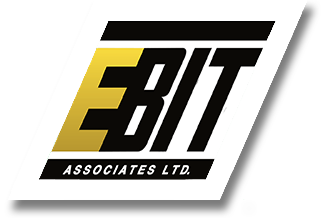



FOR SALE BY OWNER
According to the National statistics, in the U.S. only 8–10% of people sell without a real estate agent, “For Sale by Owner” (“FSBO”). The number of residential FSBOs has trended down in recent years from its high of 19% in 1997. While we have been unable to locate comparable statistical findings for business sales, experience tells us that upwards of 80% to 90% of business transactions are attempted FSBO. We have also seen that a large number of those business owners attempting a FSBO are risking the future earning potential of their business, in addition to leaving valuable dollars on the table. The risk of attempting a FSBO in a business enterprise is great enough to call into question the wisdom of anyone attempting such an undertaking alone, also called leaving money on the table.
Residential real estate transactions are fairly straightforward and has a nationally agreed upon purchase agreement document. The buying and selling process is relatively well known among the general public and real estate is easy to finance through a variety of traditional sources that help to standardize and protect the buyer and seller through the process. This is due to the nature of the collateral. Potential buyers are qualified by banks through the loan process and the residential sales process by its nature is open to the public. In essence, the process is commonplace and relatively uncomplicated. The sale of a business, on the other hand, are by their nature more intricate in their structure and highly fraught with pitfalls for the uninitiated. The stakes for the owner are much higher, confidentiality is of major concern, you cannot just put a for-sale sign outside the business like you can a home sale. Much time and effort are wasted on potential buyers who lack the proper qualifications and financing the transaction through traditional sources is difficult at best. Examination of these pitfalls proves our point.
Confidentiality
Unlike a residential sale where the more people that know the better, a business sale must be conducted in the utmost confidence in order to protect the ongoing viability of the business. The possibility always exists that if word leaks out that a business is for sale, employees will flee, competitors will pounce, suppliers will fret, and the long-term future of the business may be jeopardized. Additionally, as businesses are valued on the basis of their cash flow, the “worth” of the business may decline if the owner’s attentions are drawn away from daily operations in order to focus on the exit strategy.
Higher Stakes
Usually, businesses are sold because of the retirement of the owner or for other personal reasons. They are depending upon the proceeds of the sale to fund their lifestyle – there is no margin for error when every dollar earned in the sale is a dollar that will go towards the long-term well being of the owner and their family. Unlike a residential real estate transaction where the proceeds are likely to be shifted into the purchase of another home, the proceeds of a business sale are more likely to be funds depended upon to fund a retirement or maintain a lifestyle, making the downside of a business sale much greater.
Financing the Transaction
In the residential market, the house and the land serve as the under-lying basis for the collateral that allows the buyer to obtain traditional financing. In a business sale, much of the value of a business is its intangible goodwill. Banks are faced with little collateral and very few hard assets to foreclose upon should the business fail under a new owner. Therefore, seller financing is a major issue in business sales transactions. This creates a situation where the seller has a tremendous stake in knowing the buyer – not only the buyer’s ability to operate the business, but their reputation and personal financial condition. All too often, an owner will prematurely celebrate the sale of their business only to find out later that they had been misled by a buyer who subsequently ruins the business and jeopardizes the ultimate repayment of the loan.
The Solution?
Too often a business owner will pursue a FSBO in an effort to avoid paying a fee to an intermediary. They allow the short-term reality of a commission payment to overshadow the benefits of having a knowledge and seasoned intermediary on their side.
In most cases using an intermediary will actually increase the cash remaining in the owner’s pocket following a business transaction. A good intermediary works for the best interests of the owner throughout the transaction. Their experience in the opportunities and pitfalls inherent in business transactions, maintains confidentiality throughout the process, qualifies potential buyers for reputation and financial capability, helps structure financing scenarios that are most beneficial for the owner and allows the owner to concentrate on what they do best – running their business profitably.
An intermediary, especially one designated as a Certified Business Intermediary in the industry will reap dividends for the business seller. The stakes in this transaction are far too high to proceed otherwise. While a FSBO can occasionally make sense in the residential real estate environment, very rarely does it pay dividends in the sale of a business.
Finally, the intermediary can also perform a controlled auction process and assist in driving the price value in such a manner that a strategic buyer may pay more than a financial buyer. And as such it is wise to take your company to market with a no asking price for companies with an Adjusted EBITDA over $2M +. The smaller company the more you may need to have an asking price if it does not bring in multiple offers to the table.


